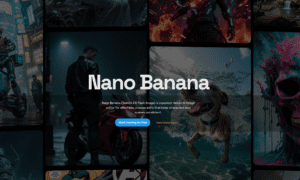Welcome to the intriguing realm of language barriers and their seamless resolution within the ever-evolving landscape of customer service in the hospitality industry. In a globally connected world where effective communication is paramount, enterprises are ceaselessly seeking innovative remedies to bridge linguistic divides and provide exceptional experiences to patrons from across the globe. This is where generative AI steps in – an innovative technology poised to redefine multilingual customer service by dismantling language barriers effortlessly. Join us as we embark on a stimulating exploration of the profound impact of generative AI on enriching communication, fostering cross-cultural comprehension, and ultimately enhancing guest satisfaction in this dynamic domain.
Introduction
In recent times, the hospitality sector has increasingly embraced generative AI to furnish customer service in numerous languages. This technological advancement has brought about a transformative shift in business operations, enabling them to communicate with patrons more efficiently and effectively.
Generative AI’s capability to generate text in multiple languages empowers it to facilitate customer service across a spectrum of scenarios. For instance, when a guest encounters difficulty conversing with a hotel staff member in their native tongue, generative AI can swiftly translate the dialogue in real-time. This ensures that the guest comprehends the discourse and can articulate their needs with precision.
Moreover, generative AI can produce textual content in diverse languages, equipping businesses to create multilingual customer service resources like FAQs, instructional manuals, and even website content. This technology empowers enterprises to guarantee that customers can access requisite information irrespective of their language preference.
The integration of generative AI into customer service marks a revolution in business operations. By harnessing this innovation, companies can elevate customer service quality while optimizing time and resource allocation.
Generative AI and its Advantages for the Hospitality Sector
The surge in artificial intelligence (AI) adoption within customer service owes much to its potential in automating routine tasks, freeing up customer service representatives (CSRs) to deliver more personalized and empathetic assistance. Additionally, AI holds the potential to surmount language barriers through real-time translation capabilities.
Generative AI, in particular, proves highly suited for customer service applications. It leverages artificial neural networks to create novel data based on existing information. This empowers generative AI systems to learn from prior interactions and furnish more precise and pertinent responses in subsequent engagements.
The benefits of employing generative AI in customer service are diverse:
Augmented efficiency: Automation of routine tasks via generative AI enhances overall operational efficiency. CSRs can then allocate more time to resolving complex issues that necessitate human intervention.
Enhanced accuracy: Generative AI systems glean insights from past interactions, resulting in more accurate responses in future exchanges. This minimizes customer frustration arising from communication challenges.
Personalized interactions: Generative AI can tailor responses to individual customer requirements and preferences, culminating in a personalized service experience that bolsters customer satisfaction.
Scalability: Generative AI’s scalability supports businesses in catering to a wider customer base without proportionally increasing human resources.
Challenges in Multilingual Customer Service and Their Resolution
The hospitality industry stands as one of the most globally connected sectors, catering to customers from diverse cultural backgrounds. Consequently, hotels and hospitality establishments must adeptly provide customer service in multiple languages.
This, however, poses a challenge to CSRs who may not be fluent in all languages spoken by patrons, leading to communication breakdowns and customer dissatisfaction.
Generative AI emerges as the remedy to these challenges, facilitating real-time translation of customer queries and grievances. This ensures that CSRs can always comprehend customers’ communication, irrespective of the language used.
Furthermore, generative AI can generate responses in the customer’s native language, fostering rapport and an enhanced overall customer experience.
Generative AI’s Contribution to Addressing these Challenges
The hospitality sector, renowned for its global nature, necessitates multilingual customer service. Yet, the language barriers can complicate effective communication with customers.
Generative AI offers a solution by automatically producing translations of customer queries. This eliminates the need to employ personnel fluent in multiple languages for customer service.
Early indications show that this technology has begun positively impacting the hospitality sector, leading to elevated customer satisfaction levels. In the foreseeable future, generative AI is likely to become a standard fixture in the industry as businesses seek avenues to enhance their multilingual customer service offerings.
Illustrations of Generative AI Applications in Hospitality
Language barriers often impede excellent customer service in hospitality. Generative AI can mitigate this challenge by promptly generating translations of customer queries and concerns. This facilitates speedy resolution of guest issues, regardless of the language spoken.
Another application of generative AI in hospitality is the generation of personalized recommendations for guests. For instance, the AI can suggest local attractions or restaurants of interest to guests, elevating their experience and encouraging return visits.
Generative AI’s potential in hospitality is vast, potentially transforming the customer service landscape. By automating translations and offering tailored recommendations, hotel staff can focus on delivering unparalleled service that engenders guest loyalty.
Possible Drawbacks of Generative AI for Multilingual Customer Service
Several potential downsides accompany the use of generative AI for multilingual customer service in the hospitality sector. First, inadequately trained systems might yield inaccurate or offensive outputs. Second, the development and maintenance of generative AI systems can incur substantial costs. Third, hackers may exploit these systems to generate fraudulent reviews or manipulate customer feedback. Additionally, some patrons might prefer human interactions over interactions with machines.
Conclusion
To sum up, generative AI holds the potential to revolutionize customer service in the hospitality industry by facilitating seamless communication across languages. Its cost-effectiveness makes it an attractive proposition for businesses aiming to offer multilingual services while enhancing user experiences. As advancements in artificial intelligence unfold, the impact on hospitality customer service and beyond will be fascinating to observe.



































